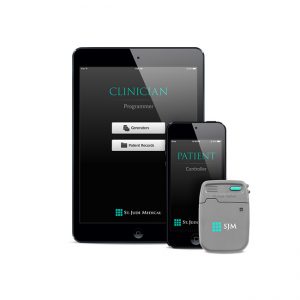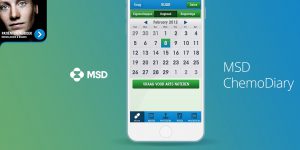Patient Engagement Mobile Apps for Pharma
The majority (60%) of clinicians and healthcare industry leaders believe effective patient engagement makes a serious impact on the quality of care and can substantially decrease the costs in the system, according to the survey held by NEJM Catalyst.
Despite existing barriers in the field, every active participant in the industry already extracts value from patient engagement mobile apps. Individual physicians and clinics remotely monitor patient adherence and collect treatment results. Patients use healthcare apps to track and share their symptoms and reaction to medication with doctors. Foundations, associations, and researchers rely on mobile patient engagement to provide relevant medical content and raise awareness among people and investors.
There’s one more category of healthcare entities that gets considerable benefits from mobile patient engagement technology — pharmaceutical companies. Let’s see how these benefits spin around this industry, how pharmaceutical apps help medical representatives, improve doctors’ experience and boost patient engagement.
In this article, you find out:
- How medical representatives armed with mobile apps for patient engagement become more productive.
- Why doctors are motivated to prescribe medications and treatments paired with apps for remote monitoring, control, and self-tracking for patients.
- What happens when you integrate mHealth and pharma mobile apps into trials and researches.
How patient engagement mobile apps enhance medical representative’s efforts
Even though it’s medical representatives who drive the adoption of pharma products by clinics, hospitals and individual doctors, less than a half (43%) of MRs can make it through the receptionists, and only 7% will get a chance to talk to a doctor for at least 2 minutes. The statistics of MR efficiency is often not encouraging, to be fair.
“Half of cancer specialists are saying that they would directly interact only on new products with MRs. 47% prefer to have communication over the email, 20% decline interaction with MRs, 40% do not meet MRs without prior appointments.” CMI Communication Media Research.
Nevertheless, MRs play an essential role as the primary channel to translate the benefits of pharma products and influence on major adopters — doctors and hospitals.
Today, a pharma patient engagement app that improves the experience for physicians and patients becomes a valuable tool in MR’s hands. First of all, it goes beyond any brochure to explain and visualize the effects and functions of any, even the most complex medical product. Secondly, digital tools augment the benefits of medical products, for example by remote monitoring features of the ability to collect important patient data. And finally, introducing mobile patient engagement into the healthcare experience promises better efficiency for doctors, clinics, associations and the whole industry in general.
Knowing that, such companies as Pfizer, Merck & Co. and Novartis actively equip their representatives with innovative digital tools to strengthen their credibility and relevance, reconnect with target audiences and improve the infrastructure around medical products.
Are you looking for a skilled team experienced in both custom mobile applications development and a good track record in building mobile apps for pharmaceutical industry? Contact Digiteum team to get a free quote for your project. We have built apps for pharma, hospitals, foundations, etc., including Takeda, Sanofi, Merck. Check our eHealth portfolio for more information.
Success cases
In pursue to reach more healthcare professionals and consumers, Merck & Co. rolled out a dual healthcare app — for providers and patients — that offers convenient access to verified medical content, drug and treatment information as well as a large database on diseases, symptoms, and up-to-date expert knowledge. These 5-star rating apps met large-scale endorsement and helped the company strengthen its connection with key target audiences — doctors and consumers.
Another pharmaceutical leader, Pfizer, also counted on patient engagement mobile apps to reconnect with certain demographics. In particular, the company started the initiative This is Living with Cancer and built a LivingWith healthcare app that enables remote interaction between cancer patients and their doctors, support groups, and caregivers. This multifunctional app includes tracking, monitoring, and document management features and integrates with Apple Health to collect real-time activity data. Today, LivingWith is already in the toolkit of many people living with cancer.
Selling the benefits of the apps that provide valuable content or enable doctor-to-patient connection in one thing. Try marketing something as complex as a medical device.
Abbott addressed this issue by creating its SJM Invisible Trial System. The device, on its own, is a spinal cord stimulation tool for chronic back pain management. Thanks to app-based programming, its functionality is transparently represented on Apple mobile devices for patients and doctors and goes without complex tuning, training and manual controls. The app helps users get a hang of the device, improves adoption, increases patient engagement and ensures patients stay in therapy for successful pain management.

Another device by Roche, CoaguChek XS System for monitoring oral anticoagulation therapy, is equipped with an iOS mobile app that transfers blood test results to assigned sources. Sending data to patient self-check or HCP’s portals, it enables continuous progress tracking. Therefore, the app substantially augments the capabilities of the medical device and encourages its regular use.
Looking for a skilled team? Check our services across iOS mobile app development
Why patient engagement mobile applications are indispensable for doctors, caregivers and pharmacists
Medical representatives may be the major channel to market pharmaceutical products. However, it’s doctors who influence the rate of prescriptions and caregivers who monitor product adoption and adherence. Therefore, many pharma companies create efficient medical apps for physicians and apps for pharmacists to contribute to the efforts of this category of users.
First of all, digital can and already tackles some of the most lasting problems in the healthcare environment — lack of awareness among patients and scarcity of accessible credible content about diseases and treatments, communication barriers between doctors and patients caused by over-bureaucratized procedures, insufficient health and social care services, especially in rural areas, to name a few.
Secondly, when you create apps that drive patient engagement and improve patient experience, user trust grows. Next-gen healthcare apps for patients with personalization features, user-friendly design and adaptive interfaces become more and more ubiquitous among different categories of users, including the elderly and people with special needs.
Finally, these tools provide both patients and doctors with many advantages, such as remote treatment monitoring on a day-to-day basis and real-time symptom and health condition tracking.
Here come some of the examples that illustrate how pharmaceutical companies support doctors’ and caregivers’ efforts.
Success cases
One of the industry leaders, Novartis built forCare app for caregivers who provide support to people with special needs, chronic diseases, or people undergoing complex medication. This functional patient engagement app works as a one-stop solution for patient management. It integrates medication adherence and doctor appointment tracking, provides caregivers with all necessary information and instructions for document management as well as valuable content that helps caregivers keep the energy up. In other words, it’s an indispensable tool for caregivers that improves their efficiency and makes their jobs easier.
Another healthcare app designed for Merck & Co. — ChemoDiary is focused on cancer patients undergoing complex chemotherapy. This mobile app collects symptoms and side effects during chemo treatment, encourages patients to self-track their reaction to the medication, maintains a treatment calendar and shares personalized medical condition reports with authorized healthcare providers. As a result, doctors receive relevant, up-to-date information on how patients react to chemo medication and can remotely follow every step of a complex treatment process.

What patient engagement mobile apps have to do with clinical trials and research
Pharmaceutical companies conduct thousands of clinical trials and research annually. It’s a long way for drugs and medical procedures to go from R&D to the tried-and-true stage, and a complex process that involves multiple players — sponsors, investigators, doctors, nurses, caregivers, and patients. The last two players in the list are particularly important. Caregivers oversee the compliance, and patients act as the subjects to provide data.
“Patients and caregivers are the heart and soul of this research, no new medical advances would be made without them.” Craig Lipset, Head of Clinical Innovation at Pfizer Worldwide Research & Development.
No need to explain why clinical trial data is a valuable asset for every investigation. Its volume determines the term needed to test a drug or medical procedure, while its quality guarantees the credibility and accuracy of trial results.
Modern digital tools, including mobile apps for pharmaceutical companies that help collect data, play an important role to enhance the efficiency of clinical trials. For example, patient engagement health care apps, especially the ones integrated with wearable devices or medical sensors and trackers, can collect diverse data about patient health conditions in real time. Meanwhile, powerful analytics based on smart algorithms can efficiently process this data and turn it into trial results.
Therefore, more pharmaceutical companies equip their research groups with digital tools to collect intake and symptom data, track patient adherence to ensure the accuracy of trial data and provide easy access to up-to-date research content and trial results.
Success cases
One of the most vivid examples of a trial companion app is myStudyCompanion by Roche. This app is focused on patients enrolled in certain drug testing. It provides users with relevant information regarding the trial schedule and details and helps patients follow the directions and adhere to the medication at testing.
A 5-star patient engagement app by a technology company Medidata Solutions, Patient Cloud ePro, also simplifies the clinical trial process and streamlines in-app symptom data collection. Able to adjust to different types of trials — medication intake, medical procedures — the healthcare app ensures patients regularly provide their data from the comfort of their homes and comply with trial directions following timely notifications and reminders.
Another tool Excedrin Migraine Experience by GlaxoSmithKline doesn’t collect data on Excedrin intake but makes an attempt to visualize each patient’s migraine experience. Integrated AR capabilities allow app users to model their personal migraine symptoms — aura, trumping headache, disorientation, floating spots, sensitivity to light — and share this data with others. This data can make a tremendous impact on our understanding of migraines and contribute to creating better solutions in this field.
Apart from helping patients share their symptoms and follow trial directions, pharmaceutical companies invest in the tools to provide trial data and easy access to credible medical content for doctors, caregivers, researchers, and patients.
For example, the above-mentioned GlaxoSmithKline developed an app GSK Studies that allows fast and convenient access to trial data across various medical topics — health conditions, studies, clinical data results, medication, and treatment, etc. Novartis enabled easy access to the latest cancer-related trial results from trusted National institutes in its Clinical Trial Seek app. This mHealth tool received 5 stars and a high endorsement rate from both patients and healthcare professionals and is considered to be one of the best apps for cancer patients.
These examples are numerous, as each pharmaceutical company, be it big players like Pfizer, Merck & Co., Novartis, Roche or smaller companies, does its best to reap the benefits of medical software development and improve its products and processes as fast and efficiently as possible. Therefore, mHealth patient engagement and next-gen patient engagement mobile apps will remain on the radar of pharma companies, and the decision-makers in the industry will stay among major implementers and adopters of modern eHealth solutions.




